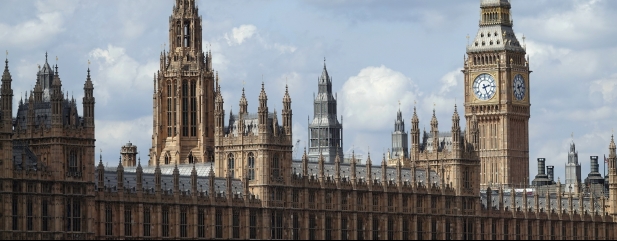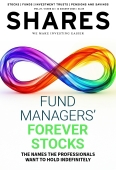Archived article
Please note that tax, investment, pension and ISA rules can change and the information and any views contained in this article may now be inaccurate.
How to cope with a cruel summer of speculation

The next Budget won’t be held until the end of October or early November, but the jungle drums have been beating pretty much since the chancellor sat down after the last Budget in March. There is some chanting alongside the drumming, and you don’t have to listen too hard to make out the words ‘tax rises’. As the shadow chancellor Mel Stride said in June, we all now face a ‘cruel summer of speculation’ ahead of the Budget about which taxes will rise, and I’d confidently go further and say it won’t stop when the kids go back to school either.
REEVES NEEDS TO FIND MONEY FROM SOMEWHERE
The Labour government has U-turned on measures like restricting the Winter Fuel Allowance and changes to benefits payments, which means Rachel Reeves will have to find some more money to balance the books. The economy’s not looking too sharp either. And the OBR, which provides the all-important financial projections for the chancellor, has said it’s been too optimistic in its previous predictions, so it may now seek to be more Eeyore and less Tigger when it comes to forecasting future economic growth. Again, that means the chancellor having to find more money to keep the public finances ticking over.
We don’t know how much money the chancellor will need to conjure up in the autumn Budget. There are a lot of moving parts which determine how much financial pressure she will be under, and many of the variables which feed into the OBR’s forecasts will be collected in the weeks before the Budget itself. There’s a lot of time between now and then for those factors to improve or deteriorate. The latest guess from the think tank NIESR suggests Reeves might have to find £40 billion from somewhere. Not an amount which is just lying down the back of the sofa at Number 11.
GOVERNMENT BOXED IN BY PREVIOUS PLEDGES
The Labour government has boxed themselves in somewhat by saying they won’t raise the personal rates of income tax or national insurance, or VAT. These are the three biggest which can be pulled to bring in some money and so excluding them means yanking on some of the smaller levers even harder. This presents an opportunity for politicians and ex-politicians (if there is such a thing) to lob some grenades into the mix. Neil Kinnock has suggested looking at a wealth tax. Gordon Brown thinks we should raise gambling taxes.
Beyond that you can be expected to be bombarded with plenty of media speculation around which taxes the chancellor will raise. Don’t be surprised to find AJ Bell mentioned in there. We respond to media questions on potential tax changes, but we try to do so in a balanced way which seeks to inform people, without overegging the pudding. That’s not always the case with the stories you will read in the press, and there can be negative consequence for your finances.
Ahead of the last Budget, there was rampant speculation that the chancellor was going to abolish or reduce the amount of tax-free cash you could take from a pension. Many people were understandably frightened about the money they had spent their lives building up and pulled it out of their pension ahead of the Budget.
PREVIOUSLY CHANGE DIDN’T COME AS EXPECTED
The chancellor didn’t change the tax-free cash rules, and these savers ended up with a load of cash parked outside the tax protection of a pension, which couldn’t go back in. That’s part of the reason why at AJ Bell we have called for the chancellor to announce a pensions tax lock: committing to no changes to pensions tax-free cash or tax relief for the remainder of this parliament, to provide some stability for investors to build their retirement plans.
So, you do need to be careful about taking action on the back of media reports about tax rises. Be sure to check the source for the information quoted in the article. Some are official, some less so. Many commentators and think tanks have political views which inform their contributions to the debate. And be particularly wary of stories built on the back of a cabinet minster refusing to rule out such and such. No minister is going to predict what the Budget will hold ahead of it happening. Not least because if you’re not chancellor, it’s not your job.
STAY INFORMED BUT DON’T ACT IN PANIC
It’s definitely important to keep informed, and press coverage around the Budget can help you do that, though do keep your critical faculties to the fore when reading. Having a stock take of your finances ahead of the Budget can also put you in a position to take action if necessary. And if you do make changes to your savings and investments ahead of the Budget, make sure that you will be happy with them even if the chancellor doesn’t raise taxes where you expect her too. Ultimately, nobody knows where the axe will fall. While that is undoubtedly a frustrating position, so is living with the consequences of a poor financial decision made in a pre-Budget panic.
DISCLAIMER: AJ Bell owns Shares magazine. The author (Laith Khalaf) and editor (Tom Sieber) of this article own shares in AJ Bell.
Important information:
These articles are provided by Shares magazine which is published by AJ Bell Media, a part of AJ Bell. Shares is not written by AJ Bell.
Shares is provided for your general information and use and is not a personal recommendation to invest. It is not intended to be relied upon by you in making or not making any investment decisions. The investments referred to in these articles will not be suitable for all investors. If in doubt please seek appropriate independent financial advice.
Investors acting on the information in these articles do so at their own risk and AJ Bell Media and its staff do not accept liability for losses suffered by investors as a result of their investment decisions.
Issue contents
Exchange-Traded Funds
Feature
Great Ideas
News
- Eli Lilly shares under pressure after disappointing clinical trial results
- Recruiter Hays set to update expectations with shares at decade-low
- Record numbers of US companies are beating revenue and earnings forecasts
- Fresnillo up 180% year-to-date after latest strong results
- All eyes on second-quarter retail bellwether Walmart
- Bellway brings a ray of light to the housebuilders with its half-year update
 magazine
magazine








